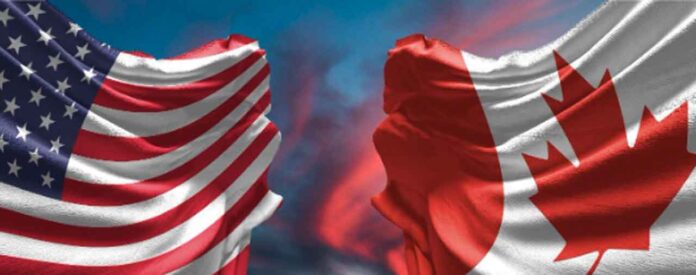Donald Trump’s highly anticipated return to the White House for a second term has stirred up waves of economic uncertainty, with his administration swiftly enacting policies that could reshape trade relations across North America. Among the most contentious proposals is a sweeping 25% tariff on imports from Canada and Mexico—an aggressive move that could have serious repercussions for the Canadian economy.
As trade tensions between the US and Canada escalate in 2025, ripple effects are beginning to reach sectors far beyond traditional manufacturing or agriculture—including the casino industry. With new US tariffs targeting digital services and cross-border financial transactions, Canadian casinos, especially those operating online platforms, face potential disruptions to payment processing, tech partnerships, and even player acquisition from American markets. These evolving economic policies could hinder growth at a time when the digital gambling space is booming.
Canadian online casino experts from NoDepositFan had this to say about the situation: “Cross-border friction creates uncertainty for operators and players alike. The industry thrives on seamless access, and any disruption could stall momentum we’ve built over the last few years.” As policymakers on both sides deliberate, the stakes for Canadian casinos continue to rise.
Dissecting the Trade War
Trump kickstarted the trade war on 1st February 2025 when he announced a 25% tariff on most Canadian imports, excluding oil and energy products, which would face a 10% tax. In response, Canada retaliated with its own 25% tariffs on up to $20 billion worth of U.S. goods. This escalating trade dispute has already led to rising consumer prices across North America, leaving businesses scrambling to adapt.
The newly appointed president has made it clear that his broader economic strategy relies on using tariffs to boost U.S. manufacturing, protect domestic jobs, and reduce the trade deficit. However, he has acknowledged the possibility of a recession as a consequence of these aggressive policies. U.S. stock markets have already taken a hit following the announcement of metal tariffs, and concerns are growing that prolonged trade tensions could stifle economic growth on both sides of the border.
Impact on Canada’s Gambling Industry
Among those now feeling the strain are Canadian casino operators and online gambling platforms. The gaming industry, which has experienced rapid growth since Ontario legalised online casinos and sports betting in April 2022, is heavily reliant on U.S.-based gaming suppliers. Alberta alone accounts for roughly 4% of North American gaming equipment sales, and in 2023, nearly 15,000 video lottery terminals and slot machines were sold across Canada—representing 16% of total sales in the region. With new tariffs driving up costs, both land-based and online casinos may struggle to maintain profitability.
The impact on U.S. gaming manufacturers is equally significant. Companies like International Game Technology (IGT), Light & Wonder, and Aristocrat Gaming, which supply 83% of Canada’s gaming equipment, now face potential multi-million-dollar losses as Canadian provinces reconsider their reliance on American suppliers. The Alberta Gaming, Liquor and Cannabis Commission (AGLC) has already signalled potential changes that could shift business away from U.S. manufacturers, forcing them to seek alternative revenue streams.
For Canada’s online gambling industry, the biggest risks lie in supply chain disruptions and regulatory uncertainty. Increased costs for gaming equipment, software, and digital services could lead to higher expenses for casino operators, potentially driving up costs for players and slowing industry expansion. If more provinces follow Alberta’s lead in seeking alternative suppliers, Canada’s online gambling sector may need to pivot towards domestic innovation or international partnerships to remain competitive.
A Shift In Spending Power
As the cost of living rises, discretionary spending—money spent on non-essential activities like online gambling—is often one of the first areas where consumers cut back. Critics have highlighted how tariffs impact not just trade and employment, but also inflation, which could lead Canadian households to prioritise essentials over entertainment. With an estimated additional $1,900 in annual costs for Canadian families, online casino operators may struggle to maintain the same level of player engagement and revenue growth.
The economic slowdown triggered by tariffs could also lead to layoffs and rising unemployment, further reducing consumer confidence. Historically, financial uncertainty causes people to tighten their budgets, and industries reliant on discretionary spending, such as online gambling, tend to take a hit. While some consumers respond to economic uncertainty by increasing their gambling in hopes of big wins, overall market trends suggest that a prolonged downturn could force online casinos to adjust their marketing strategies, offer more promotions, or lower betting thresholds to keep players engaged.







